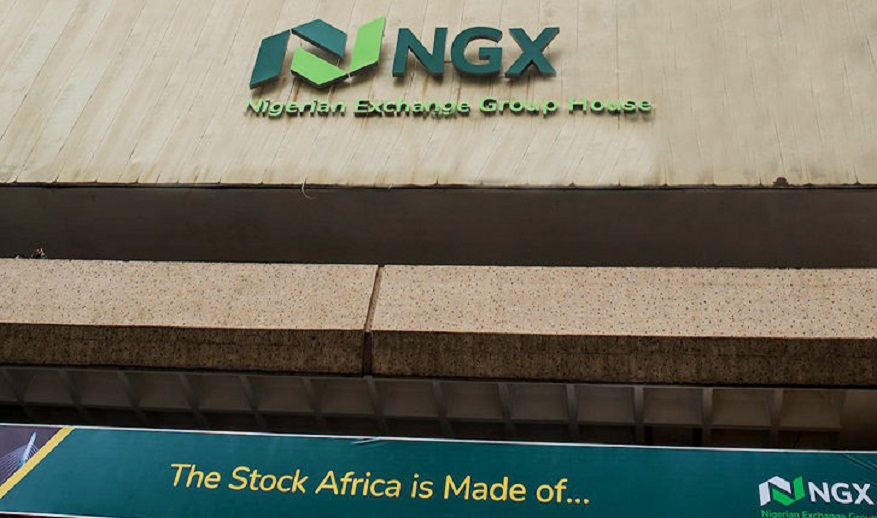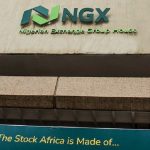Economy
Agusto & Co Predicts 8% Growth for Insurance Sector in 2017


By Dipo Olowookere
A report for the insurance industry for 2017 has been released by Agusto & Co, a rating firm based in Nigeria.
In the report, Agusto & Co noted that the role of insurance in the Nigerian economy cannot be overstated and that its strategic importance in underwriting business and individual risks is evident in an estimated gross premium income (GPI) of S58;356 billion generated by the insurance industry in 2016, reflecting a 10 percent growth over FY2015.
The agency said it projects a moderated growth rate of 8 percent on account of the recession which is expected to have significant impact on major business lines in 2017.
It also estimates that 28 percent of the Industry’s GPI was paid out as claims in 2016, helping businesses and individuals recover from losses quickly.
The insurance industry is a major contributor to economic growth and development as premiums collected are invested in banks and deployed to fund government projects, the report said.
In 2016, the Nigerian insurance industry invested an estimated S58;178 billion in the banking industry as placements & deposits and held Treasury instruments of over S58;270 billion.
“We expect increased investments in government securities in 2017 as Insurers take advantage on higher interest rates,” the report said.
Opportunities in the Insurance Industry abound as the Industry’s penetration rate stood at 0.4 percent in 2015.
Insurance density rate which measures GPI as a proportion of population is $8.3 compared to Kenya’s $36.4 and South Africa’s $970.8.
It said going forward, evolving risks such as job losses, cyber risks among others will offer prospects for the development of new insurance products.
“We expect increased government spending in the near term which will support GPI growth.
“In addition, micro insurance- which allows people purchase insurance cover in small daily premiums payable using mobile phones- is expected to gain traction in the near term with insurers using various avenues to reach the uncaptured market,” the report said.
“The current inflationary pressures have an upside on the Industry’s investment portfolio performance as interest rates soar to overcome rising inflation and negative returns on investments.
“We expect these positives to offset the negatives in the industry; therefore, we attach a stable outlook to the Insurance Industry. The industry will also benefit from a probable devaluation and continued growth in life business in 2017,” it added.
Like most other Industries operating in Nigeria, the Insurance Industry was adversely impacted by the downturn in the economy which had its roots in declining crude oil prices since 2014.
The Nigerian economy went into a recession in the third quarter of 2016 following two consecutive quarters of negative GDP growth.
This slowed down activities in various industries including the insurance industry.
Inflationary pressures also had a negative effect on cost of operations as well as the value of long term savings. Reduced consumer purchasing power threatened GPI growth and increased surrenders in the life business segment.
In the non-life segment we observe a preference for less expensive insurance covers such as third party insurance cover as against comprehensive motor insurance cover.
The foreign exchange demand management tactic adopted by the Central Bank of Nigeria in controlling outflows from already depleted reserves resulted in a scarcity of FX which in turn impacted dollar denominated premiums negatively.
The naira depreciated significantly against the dollar, trading at S58;305/$ to S58;315/$ in the interbank market and as high as 358;498/$ in the black market.
The resultant effect is a reduction in the insurance cover on assets such as motor vehicles whose prices have almost tripled. We expect these FX challenges to persist in 2017.
The industry’s regulatory environment is likely to change in the near term in response to the current macroeconomic climate.
Regulators are beginning to emphasize risk profiles of insurance companies as against amount of capital held. The proposed Risk Based Supervision Framework which is expected to be implemented in the near term will prompt reviews of business strategies.
“As a result, we foresee mergers and acquisitions in the Industry as well as foreign direct investments in the near term.
“Nonetheless, Agusto & Co is of the opinion that restrictions in the current FX regime may impede foreign direct investments.
Another regulation that will shape operations in the insurance industry is the Bancassurance Guidelines which has received significant attention from regulators in recent times,” the report said.
The competitive landscape remains intense across major business lines such as motor, fire, general accidents, oil& gas and life insurance.
The Agusto and Co Nigerian Insurance report ranks Industry players by various indices across major business lines, providing a snapshot of key performance indicators at a glance.
Economy
NASD OTC Index Jumps to 3,830.31 Points on 1.68% Gain

By Adedapo Adesanya
The NASD Over-the-Counter (OTC) Securities Exchange extended its gains by 1.68 per cent on Tuesday, February 10, further lifting the Unlisted Security Index (NSI) by 63.37 points to 3,830.31 points from the previous session’s 3,766.94 points.
In the same vein, the market capitalisation of the bourse expanded by N37.92 billion during the session to N2.291 trillion from the N2.253 trillion it ended on Monday.
The growth was helped by six price gainers led by Central Securities Clearing System (CSCS), which gained N5.88 to sell at N64.73 per share versus N58.85 per share, FrieslandCampina Wamco Nigeria Plc rose by N3.67 to N69.67 per unit from N66.00 per unit, Afriland Properties Plc increased by 94 Kobo to N15.95 per share from N15.01 per share, Geo-Fluids Plc appreciated by 33 Kobo to N4.41 per unit from N4.08 per unit, IPWA Plc soared by 26 Kobo to N2.85 per share from N2.59 per share, and Food Concepts Plc improved by 26 Kobo to N2.89 per unit from N2.63 per unit.
Business Post reports that there were three price losers yesterday, led by MRS Oil, which lost N20.00 to trade at N180.00 per share versus N200.00 per share, NASD Plc dipped by N3.60 to N51.40 per unit from N55.00 per unit, and Air Liquide Plc depreciated by N2.21 to N20.32 per share from N22.53 per share.
The activity level was down on Tuesday, as the volume of securities slid 50.1 per cent to 6.9 million units from 13.3 million units, the value of securities decreased by 10.4 per cent to N89.1 million from N99.3 million, and the number of deals reduced by 2.1 per cent to 46 deals from 47 deals.
CSCS Plc was the most traded stock by value on a year-to-date basis, with 17.7 million units sold for N752.8 million, Geo-Fluids Plc recorded the sale of 29.2 million units valued at N149.8 million, and FrieslandCampina Wamco Nigeria Plc ended with a turnover of 1.8 million units worth N119.8 million.
The most traded stock by volume on a year-to-date basis was Geo-Fluids Plc with 29.2 million units exchanged for N149.8 million, followed by CSCS Plc with 17.7 million units traded for N752.8 million, and Mass Telecom Innovation Plc with 15.1 million units valued at N6.1 million.
Economy
Naira Soars to N1,351/$1 at Official Market, N1,430/$1 at Black Market

By Adedapo Adesanya
The consistent reform agenda of the Central Bank of Nigeria (CBN) aimed at enhancing market stability by improving foreign exchange (FX) liquidity further strengthened the Nigerian Naira against the US Dollar in the Nigerian Autonomous Foreign Exchange Market (NAFEX) on Tuesday, February 10, by N3.24 or 0.24 per cent to N1,351.02/$1 from the previous day’s N1,354.26/$1.
At the black market, the Naira gained N20 against the United States Dollar yesterday to trade at N1,430/$1 compared with the preceding day’s N1,450/$1, and at the GTBank FX desk, it improved its value by N16 to sell for N1,363/$1, in contrast to the N1,379/$1 it was exchanged a day earlier.
The domestic currency also appreciated against the Euro in the official market during the session by N6.70 to N1,606.49/€1 from the preceding session’s N1,613.19/€1 but depreciated against the Pound Sterling by 85 Kobo to close at N1,846.57/£1 compared with Monday’s closing price of N1,845.72/£1.
Nigeria’s FX market has continued the year on a firmer footing, extending the positive momentum recorded in 2025.
The Governor of the central bank, Mr Yemi Cardoso, said reforms have extended across the financial landscape, anchored on disinflation, FX market normalisation, and financial-system resilience, which are strengthening real-sector confidence.
In addition, stronger trade receipts, reflecting the impact of elevated global oil prices, helped boost FX supply and support currency stability.
Meanwhile, the cryptocurrency market was under pressure, with analysts saying the recent drawdown, which is the steepest since the 2024 halving, has come on low spot trading volumes, suggesting retail investors have mostly stepped aside while leveraged derivatives drive price moves.
This comes ahead of a closely-watched US employment data for January due on Wednesday, which the US government officials suggest could be weaker than forecast.
Originally scheduled for last Friday, the government’s January Nonfarm Payrolls Report is now coming out on Wednesday morning due to the brief federal shutdown last month.
Solana (SOL) weakened by 4.5 per cent to $81.91, Binance Coin (BNB) slumped 4.4 per cent to $608.22, Ripple (XRP) dipped 4.3 per cent to $1.37, Ethereum (ETH) dropped 3.7 per cent to $1,975.44, and Dogecoin (DOGE) saw a 3.2 per cent fall in value to trade at $0.0916.
Further, Bitcoin (BTC) went down by 2.8 per cent to $67,517.93, Cardano (ADA) slid 2.7 per cent to $0.2581, and Litecoin (LTC) declined by 2.1 per cent to $52.55, while the US Dollar Tether (USDT) and the US Dollar Coin (USDC) closed flat at $1.00 each.
Economy
NGX Records 2026 Highest Daily Gain of 1.65% as YtD Return Hits 13.62%

By Dipo Olowookere
The Nigerian bourse showed no signs of slowing its bull run as it further appreciated by 1.65 per cent on Tuesday, its highest daily gain in 2026.
This was influenced by continued interest in shares in the energy, consumer goods and industrial goods sectors.
Data from the Nigerian Exchange (NGX) Limited revealed that the energy space increased by 2.97 per cent, the industrial goods counter appreciated by 2.93 per cent, the banking index expanded by 1.83 per cent, the consumer goods sector improved by 0.16 per cent, and the insurance segment rose by 0.01 per cent.
As a result, the All-Share Index (ASI) added 2,863.20 points to close at 176,809.42 points compared with the previous day’s 173,946.22 points, and the market capitalisation soared by N1.838 trillion to N113.497 trillion from N111.659 trillion.
The growth recorded by Customs Street yesterday was mainly due to buying pressure on some bellwether stocks like MTN, GTCO, BUA Cement, Lafarge Africa and others.
Sixty-six equities ended on the gainers’ chart during the session, while 22 equities finished on the losers’ chart, indicating a positive market breadth index and bullish investor sentiment.
The quartet of Omatek, Deap Capital, eTranzact, and John Holt chalked up 10.00 per cent each to sell for N3.19, N8.25, N20.35, and N8.80 apiece, while Vitafoam Nigeria gained 9.98 per cent to settle at N105.80.
Conversely, Abbey Mortgage Bank lost 9.82 per cent to trade at N12.40, SAHCO declined by 9.06 per cent to N150.00, Guinea Insurance slipped by 6.67 per cent to N1.54, Consolidated Hallmark shrank by 6.64 per cent to N4.50, and Livestock Feeds depleted by 6.34 per cent to N6.65.
A total of 1.3 billion stocks valued at N50.4 billion exchanged hands in 58,965 deals on Tuesday compared with the 775.2 million stocks worth N27.9 billion transacted in 65,960 deals on Monday, implying a fall in the number of deals by 10.61 per cent, and a growth in the trading volume and value by 67.70 per cent and 80.65 per cent, respectively.
Deap Capital was the most active stock for the day with a turnover of 283.1 million units valued at N2.0 billion, Access Holdings traded 135.5 million units worth N3.2 billion, Veritas Kapital transacted 67.3 million units for N149.7 million, Tantalizers exchanged 54.7 million units valued at N289.8 million, and Zenith Bank sold 52.1 million units worth N4.0 billion.
-

 Feature/OPED6 years ago
Feature/OPED6 years agoDavos was Different this year
-
Travel/Tourism10 years ago
Lagos Seals Western Lodge Hotel In Ikorodu
-

 Showbiz3 years ago
Showbiz3 years agoEstranged Lover Releases Videos of Empress Njamah Bathing
-

 Banking8 years ago
Banking8 years agoSort Codes of GTBank Branches in Nigeria
-

 Economy3 years ago
Economy3 years agoSubsidy Removal: CNG at N130 Per Litre Cheaper Than Petrol—IPMAN
-

 Banking3 years ago
Banking3 years agoSort Codes of UBA Branches in Nigeria
-

 Banking3 years ago
Banking3 years agoFirst Bank Announces Planned Downtime
-

 Sports3 years ago
Sports3 years agoHighest Paid Nigerian Footballer – How Much Do Nigerian Footballers Earn












